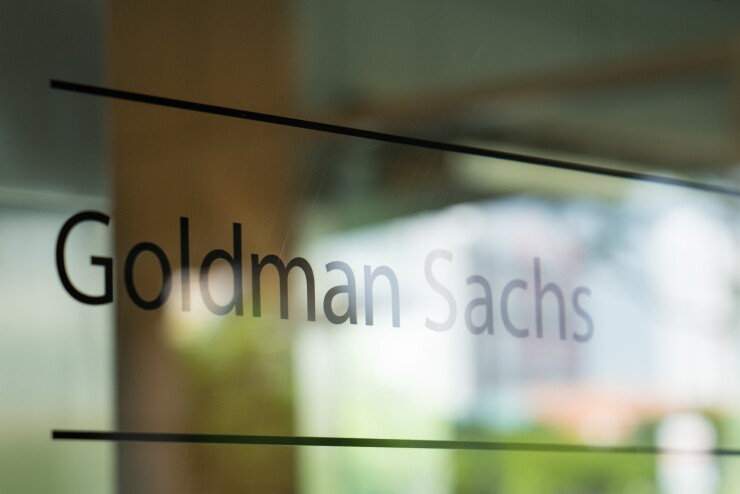Fresh off its support of the
Goldman Sachs joins Sallie Mae, Accel, Aspect Ventures, Pelion Venture Partners and Mission Holdings in raising $50 million for
The Apple Card was Goldman Sachs' first major move into the credit card business. Apple Card is primarily a digital offering, though consumers may request a titanium card to extend their use of the account.

The bank's interest in digital card platforms is also fueling its support of the Deserve platform, said Deserve CEO and co-founder Kalpesh Kapadia.
"I believe that in five years, sending a plastic card through the mail will be like Netflix sending a DVD in the mail," Kapadia said. "Apple is helping show the way in what you can do with the cards when you don't have legacy systems holding you back."
The Apple Card required a custom platform that Mastercard described as "digital first, physical optional." And just as Mastercard is looking to
"For sure, they are thinking of a similar approach to Apple Card and they have made a big bet on digital consumer banking without the legacy infrastructure and instead using modern technology," Kapadia said. "They view us in a very similar way to the Apple Card arrangement they have."
Goldman did not respond to inquiries prior to deadline, though managing director Ashwin Gupta did acknowledge the bank's interest in Deserve's technology in a statement to media.
"Goldman Sachs is supportive of Deserve's mission to expand access to credit and to simplify the ability for organizations to offer their own bespoke credit card products," Gupta said.
Deserve provides its digital card platform as a white label service for partners, usually banks or retailers. One of the investors, Sallie Mae, is already using Deserve to provide digital card products.
Partners can also co-brand digital cards and onboarding with Deserve, much in the way airlines work with traditional card issuers.
For the past two years, Deserve has been positioning itself as credit card best suited for students and underbanked young adults. Its underwriting system does not rely on FICO scores to extend credit. Instead, the company judges applicants on their future potential.
It was a natural way to approach a card designed for students, to essentially bank on a student's current credentials and prospects for the future, Kapadia has said in the past. The company now moves forward with a general focus on younger and tech-savvy consumers who rely on digital services on their devices in many facets of their lives.
"In some ways, what we did before was harder," Kapadia said. "If I can underwrite those people before with no credit score, it is easier now in partnering with credit bureaus."
In obtaining new investment, Menlo Park, Calif.-based Deserve sees the opportunity to build out its platform and marketplace.
"It is for anyone who wants to do a credit card on a modern platform," Kapadia said. "When you look at the credit card industry, you are talking about 20th century technology with cobalt programming and main frames and overnight batch processing."
Deserve builds everything through its digital platform, while using the current payment rails from Visa and Mastercard. "When you are not encumbered by legacy, you can do magic," Kapadia said.
Banks are increasingly interested in digital platforms, though
"Virtual cards have been around for more than 20 years, initially with the one-time use cards," Reef said. "Clearly, banks that have reasonable legacy systems don't have a problem modifying those systems or using them to issue digital cards."
Still, banks are interested in fintech companies like Deserve because they offer products they believe will be useful in their markets and can do it quicker than the banks trying to do it themselves, Reef added.
As the company moves forward, Deserve has its sights set on being part of a digital card explosion — one in which plastic cards would become a novelty that consumers would pay extra to have.
"Banks don't make a significant investment in fintech because they think it is going to be kind of fun," Reef said. "They make it because they think there is an opportunity to make money, and because they like the product and think it has value and can gain traction."
It also provides an opportunity for the bank to learn about new technology and participate in something financially rewarding for shareholders, he added.





